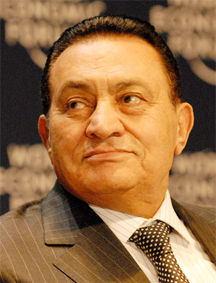Nicholas Laughlin on reading Martin Carter while following the Egyptian revolution
For most of the past eighteen days, I’ve kept Al Jazeera’s website open on my laptop and Martin Carter’s poems close at hand.
Cairo is six thousand miles from Port of Spain. I have never visited Egypt. I have Egyptian acquaintances and colleagues, but no close friends. I know only a little about the social and political contexts of the recent events there — though I know far more now than I did three weeks ago. But like multitudes of others around the world, I have been held rapt by the mass demonstrations that broke out on January 25. I’ve watched as closely as I could while hundreds of thousands perhaps millions of Egyptians marched into the streets, demanding the end of Hosni Mubarak’s 30-year rule, an end to state oppression and official corruption, and the right to speak freely, vote freely, live freely. I’ve watched while the protestors took possession of Tahrir Square in the middle of Cairo and defended themselves against armed Mubarak supporters. I felt the currents of hope and fear charging their defiance. I too watched in consternation on the night of February 10 as Mubarak, with frown and wrinkled lip, stubbornly repeated his refusal to step aside. And I watched today as he fled the capital, resigning via proxy and euphoric celebrations broke out in Cairo, in Alexandria, in dozens of cities where no TV cameras rolled.
The Egyptian revolution — as the protestors call it — was remarkable for its speed, its relative peaceableness (blood was spilled, but the mass carnage many feared never happened), for the protestors’ sheer idealism, the democratic pulse of a movement without obvious figureheads, and its moral force, the clear opposition of good and evil. That moral force explains why so many of us watched so intently. To bear witness, even

